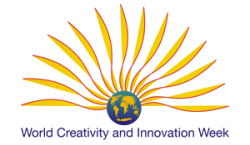Worker's creativity valuable to economy: research from Martin Prosperity Institute
For years we’ve been doing our best to show how creativity is important to people’s businesses and lives. Wouldn’t you know that it takes economists to do this?
The Martin Prosperity Institute, including Roger Martin and Richard Florida, is doing its best to support creativity as economically valuable, step-by-step. It’s indirect now. The report released today lists three major occupational skills: analytical, social intelligence and physical. They say that the first two are creative.
Creative thinking can and is being used in all three daily. They say that creative work pays people to make decisions. Isn’t everyone paid to do that? New ideas and new decisions are made everyday by people in all occupation groups to find improvements that positively affect their work and lives.
What worries me in this preliminary research is that classicism may be furthered with regards to who has creativity and who doesn’t. In the 1950′s we thought that way, not today. After decades of research the field of Creative Studies has demonstrated all have creative ability and express it uniquely. Boiled down in simple terms, creativity is the function of attitude on knowledge, imagination and evaluation to produce novel and relevant results. Do you think the folks at MPI are up to date on their creativity research? Maybe not. They are economists. Their focus of inquiry is different. Would be nice to see a connection between the two fields of discipline in the future.
The report says cities with occupations requiring analytical and social intelligence skills outperform those with physical skills and, the current economy values analytical and social intelligence skills to a much higher degree than physical skills, suggesting this trend will continue.
Analytical – This skill set consists of logical thinking, number facility and general cognitive functioning. It includes capabilities such as determining how a system works and how changes in conditions will affect the outcome. It also includes the abilities to develop and use rules and methods to solve problems and quickly and accurately compare and contrast patterns or sets of numbers. Occupations that draw most on analytical skills include surgeons and biomedical engineers, and those that draw least are pile-drive operators and fashion models.
Social Intelligence – This skill set has a personal element. It includes complex thinking skills that are essential for assessing fluid, ambiguous human situations – skills like deductive reasoning, the ability to apply general rules to specific problems to produce answers that make sense and judgment. Occupations high in social intelligence skills require strong interpersonal skills – such as understanding, collaborating with and managing other people. Not surprisingly, occupations that require the highest levels of these skills are psychiatrists, chief executives, marketing managers and lawyers. Note that this skill is not just related to any level of human interaction; instead the skill refers only to two-way communication, cooperation, and comprehension.
Physical – This skill set focuses on the ability to use motor skills and strength in an occupational capacity. It includes arm-hand steadiness, coordination and dexterity. Derrick operators are at the top of this list, along with steel workers, fire fighters and electricians.
It’s a good beginning to show that creativity is economically valuable. I’m looking forward to future research showing how creativity is economically valuable for all, not just those in the ‘thinking’ fields. Wouldn’t it be nice to support all people as having creative ability, of getting new ideas and making new decisions that make the world a better place and make their place in the world better too?
What’s your take on this?
Add to: Facebook | Digg | Del.icio.us | Stumbleupon | Reddit | Blinklist | Twitter | Technorati | Yahoo Buzz | Newsvine


Follow…